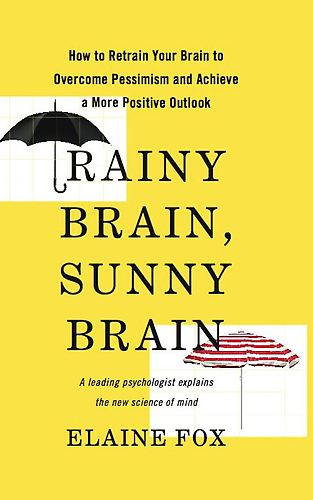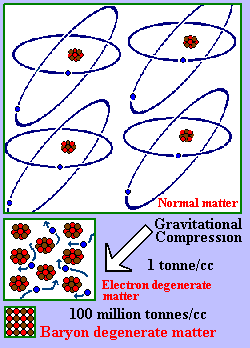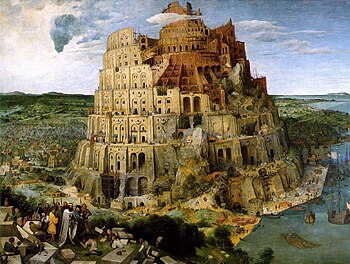

|
Love Thy Neighbor What can it mean, a command to “Love thy neighbor?” In the post-Enlightenment perspective, our world is defined from the outside in, and it seems natural that the imperative is to behave kindly toward others, a paraphrasing of the Golden Rule. But if Jesus was a mystic, I suspect that what he meant was to culture the experience of love within us. A wide range of thoughts and emotions arises continually within us, as if from nowhere and outside our will. Yet we are able, perhaps as often as several times per minute, to choose which thoughts to nourish with our attention and which to set aside. If we choose to reinforce the loving feelings and allow vindictive or spiteful thoughts to languish, then over time the love takes root within us. We feel safer, more satisfied and more connected. There is nothing wrong with living by the Golden Rule. But in the long run, culturing love within ourselves can change our behaviors from the inside out. — Josh Mitteldorf |
1 July 2012
|
||
|
If time is not real, then the dividing line between this world and
eternity, between suffering and bliss, between good and evil, is also an
illusion. Time is but the shadow of the world upon the background of eternity. |
2 July 2012
|
||
|
What’s it like to be a rose bush? If a maple tree is attacked by bugs, it releases a pheromone into the air that is picked up by the neighboring trees. This induces the receiving trees to start making chemicals that will help it fight off the impending bug attack...Plants also communicate through signals passed from root to root. In this case the “talking” plant had been stressed by drought, and it “told” its neighboring plants to prepare for a lack of water. Desert plants claim a territory by emitting warning signals through their roots. — read an interview with Daniel Chamovitz in Scientific American |
3 July 2012
|
||
|
Re-thinking the American Revolution Why do we assume that we had to fight a bloody revolutionary war to get rid of England? In the year before those famous shots were fired, farmers in Western Massachusetts had driven the British government out without firing a single shot. They had assembled by the thousands and thousands around courthouses and colonial offices and they had just taken over and they said goodbye to the British officials. It was a nonviolent revolution that took place. But then came Lexington and Concord, and the revolution became violent, and it was run not by the farmers but by the Founding Fathers. The farmers were rather poor; the Founding Fathers were rather rich. |
4 July 2012
|
||
|
Triumph! This is the opening of the Mass for Life The text is from Also Sprach Zarathustra of Friedrich Nietzsche.
|
5 July 2012
|
||
|
It can’t be work In religion, [we find] the pursuit of an ultimate aim, such as salvation or enlightenment, from which all other good things flow. How like the unlimited aim of money! I wonder what the effect would be on our spirituality if we gave up on the pursuit of a unitary abstrac goal that we believe to be the key to everything else. How would it feel to release the endless campaign to improve ourselves, to make progress toward a goal? What would it be like just to play instead, just to be? Like wealth, enlightenment is a goal that knows no limit, and in both cases the pursuit of it can enslave. In both cases, I think the object of the pursuit is a spurious substitute for a diversity of things that people really want. |
6 July 2012
|
||
|
Already at birth — Peter Levitt, from One Hundred Butterflies |
7 July 2012
|
||
|
Meditation practice as rehearsal I have been in the habit of practicing meditation with the hope that, via some mystical process that I accepted but could not understand, my practice would someday lead to enlightenment.* Today I came to see ‘practice’ of meditation as akin to practicing the piano, or practicing what I preach. In meditation, I am rehearsing the mental stance that I would like to wear habitually. This is less mysterious – almost obvious in its clarity. What is less clear: Is it also possible to achieve transpersonal change via meditation? For example, can metta meditation bring peace or satisfaction to another? Can we contribute to a more peaceful world simply by holding the vision and the intention? — Josh Mitteldorf *To be fair to myself, I should add that I have noticed that meditation practice usually improves my mood and leads to greater productivity – sometimes dramatically and unmistakably so. So it’s not all about investing effort in a future goal. To be honest, I should add that part of my motivation in spiri- tual practice has always been an unholy desire to prove myself more worthy, a form of one-upmanship. |
8 July 2012
|
||
|
Fake it til you make it Elaine Fox, a psychologist at the University of Essex in England and author of an informative new book on the science of optimism, Rainy Brain, Sunny Brain, says positive thinking is not the main thing about optimism... In an interview, Dr. Fox said: “The important thing is having a sense of
control over your life, your destiny. When you have a setback, you feel you
can do something about it.” — from Jane Brody’s NYTimes column on health ...and don’t forget to organize and act collectively when institutional odds are
stacked against you. |
9 July 2012
|
||
|
Those who prepare for all the emergencies of life beforehand may
equip themselves at the expense of joy.
Why not seize the pleasure at once? How often is happiness destroyed by preparation? Foolish preparation!
|
10 July 2012
|
||
|
When I was through, he spoke hesitatingly, then, carried away by the importance of his subject, ever more passionately. “How can you bring yourself to say ‘God’ time after time? How can you expect that your readers will take the word in the sense in which you wish it to be taken? What you mean by the name of God is something above all human grasp and comprehension, but in speaking about it you have lowered it to human conceptualization. What word of human speech is so misused, so defiled, so desecrated as this! All the innocent blood that has been shed for it has robbed it of its radiance. All the injustice that it has been used to cover has effaced its features. When I hear the highest called ‘God,’ it sometimes seems almost blasphemous.” Buber replied thus: “Yes, it is the most heavy-laden of all human words. None has become so soiled, so mutilated. Just for this reason I may not abandon it...” |
11 July 2012
|
||
|
Sonnet XXXIV Eres hija del mar y prima del orégano,
Al agua van tus ojos y levantan las olas,
Náyade, corta tu cuerpo la turquesa
y al fin duermes rodeada por mis brazos que apartan — Pablo Neruda, born this day in 1904 You’re the daughter of the sea and oregano’s cousin.
Your eyes turn to the waters, and the waves come up.
Naiad, the turquoise slashes you,
and at last you sleep, surrounded by my arms, which part Peace goes into the making of a poem as flour goes into the making of bread. |
12 July 2012
|
||
|
words by Walt Whitman; music by Ralph Vaughan Williams |
13 July 2012
|
||
|
“It is only our absurd ‘scientific’ prejudice that reality must be physical and rational that blinds us to the truth...The imagination is not a faculty for the creation of illusion; it is the faculty by which alone man apprehends reality. The ‘illusion’ turns out to be truth.” |
14 July 2012
|
||
|
Now and then, I’ll catch a glimpse that whom I’ve touched are who I
am; Let oneness never be my mantra, lest I fear that I deceive — Josh Mitteldorf |
15 July 2012
|
||
|
Himalaya O Himalaya, tell of that time when man first lay — Mohammed Iqbal (1877 -1938) one of the two great South Asian poets of the 20th Century (the other was Faiz Ahmed Faiz) advocated ceaseless endeavor, writing with equal ease in Persian, Urdu, and English. He was knighted by the British but is rarely called Sir Mohammed. Translated from the Urdu by Rafiq Kathwari, guest poet at 3Quarks Daily. |
16 July 2012
|
||
|
Do we need one more reason to be kind to ourselves? Remorse is not among the eternal verities. The Greeks were right to dethrone her. Her action is too capricious, as though the Erinyes selected for punishment only certain men and certain sins. And of all means to regeneration, Remorse is surely the most wasteful. It cuts away healthy tissues with the poisoned. It is a knife that probes far deeper than the evil. Leonard was driven straight through its torments and emerged pure, but enfeebled—a better man, who would never lose control of himself again, but also a smaller, who had less to control. Nor did purity mean peace. The use of the knife can become a habit as hard to shake off as passion itself, and Leonard continued to start with a cry out of dreams. — E M Forster (fr Howard’s End) |
17 July 2012
|
||
|
How the world works: solid matter and Type 1a Supernovae Gases like air can be squished with a hand pump, but solids and liquids are something else again. You can squeeze as hard as you want on a rock and it won’t compress significantly. Liquids are deformable, but not compressible: if you filled your bicycle pump with water, you would break the piston before you could squeeze the water. The pressure that makes matter feel solid comes not from anything really solid, but from lots of electrons bouncing around*. The electrons don’t form a regular gas, which would be compressible like air. Instead, they congeal down to the lowest quantum state they can find. (Then they push each other aside into the next quantum state and the next, because electrons won’t tolerate having other electrons in the same quantum state. That’s called the Pauli Exclusion Principle, but what it really means is that electrons have sharp elbows.) So the reason that it’s so hard to compress stone or water or anything solid is that the electrons have already taken all the low-energy quantum states. To push them closer together, you’d have to lift some electrons into the next highest quantum state, and the energy for that turns out to be on the order of a Rydberg per electron, which translates into a pressure of 10 million atmospheres. That’s about how hard you’d have to press your bicycle pump before you’d get noticeable compression in a cylinder full of water. That’s a lot of pressure compared to everyday life, but in the context of geology or astronomy, such pressures are common. The pressure at the center of the earth is enough to compress rock to several times its normal density. And stellar pressures are something else again (TBC tomorrow...) * This was the discovery that stunned Ernest Rutherford in 1909, after he had already won his Nobel prize. How many scientists can you think of who did their best work after their Nobel? |
18 July 2012 |
||
|
How the world works: solid matter and Type 1a Supernovae No slouches, the electrons that give matter its solidity are zipping
around at about 1,000 miles per second. Still their speed is less than
1% of the speed of light, so they can be understood pretty well without
invoking Relativity. But there are some stars in which electron speeds
can go much higher. Called white dwarf stars, they have
reached a kind of purgatory after they have burned up all their
hydrogen, so they are not generating enough heat and gas pressure to
hold themselves up. The gaseous star then collapses inward until it is
stopped by something hard, and that happens when its core becomes so
dense that it is no longer gaseous but liquid. The threshold mass is called the Chandrasekhar limit, and it is about 40% heavier than our sun. Most stars are smaller than this, and they become white dwarves when they run out of fuel. But some are larger, and they collapse with a bigger bang, forming a black hole. All white dwarf stars have to be smaller than 1.4 times the mass of
the sun. But sometimes a white dwarf star finds itself next to another, uncollapsed
star, circling in orbit close enough that some of the atmosphere of the
other star can be sucked in by the dwarf’s gravity. Slowly the white
dwarf accretes mass. Heavier and heavier, then suddenly they reach
the Chandrasekhar limit and – boom! A
supernova of type 1a. |
19 July 2012
|
||
|
Thrive If we cut the US military budget in half it would still roughly equal the defense spending of the entire rest of the world combined. Between that and getting rid of the Federal Reserve, over a trillion dollars would be freed, enough to feed everyone on our planet, deal with social issues, and heal our planet. Many people believe that widespread poverty and deprivation are inevitable. But compared to war, eliminating poverty and restoring the environment are cheap. According to Lester Brown’s Earth Policy Institute, it would take under $200 billion a year to restore the earth’s environment and meet global social goals. The crisis has matured to being on the threshold of mass awakening.
|
20 July 2012
|
||
|
Precept #11 of Thich Nhat Hahn Do not live with a vocation that is harmful to humans and nature. Do not invest in companies that deprive others of their chance to live. Select a vocation that helps realise your ideal of compassion. — #11 from the 14 Precepts of Thich Nhat Hahn This has been a challenge for me ever since I entered the world of work. I feel that capitalism is ‘harmful to humans’. It is difficult to participate in the American economy without feeling myself either an oppressor or a victim. Most employment entails some of each. I have felt best about myself as a teacher, placing appropriate challenges in front of students and encouraging them to think for themselves. I have thought it right to devote some portion of my public life to work that furthers a more human economy. I have reminded myself to be gentle, to forgive myself for making compromises in order to live comfortably and conveniently. I am open to friendly counsel and new perspectives in the area of right livelihood. |
21 July 2012
|
||
|
To-do list 1. Be kind |
22 July 2012
|
||
|
Google Translate The amazing thing to me is how reliably you get a comprehensible, if not grammatical rendition of a document in any language. If you haven’t already, try it here. Poems are often amusing, sometimes hilarious. As recently as 10 years ago, AI people said that ‘natural language’ had turned out to be a much harder problem than early computer enthusiasts had guessed, and that a program to understand a book or an article would require a huge database of commonsense knowledge, and a brain-like system for relating new knowledge to old. But that’s not what Google Translate is, and not how it works. In typical Google fashion, they have used the entire internet as a huge database. Where documents exist in more than one language, they have matched the two texts against each other with a computer algorithm, and based purely on statistics, they match a phrase in (say) Bulgarian with a corresponding phrase in English that some human has used to translate it in the past. It’s useful. It brings us together. It’s now possible for us to know something about the news that people read in Bangalore or Accra or Kabul. And it’s another significant step toward international understanding and world peace. In my Chrome browser, Google always offers to translate a web page that is in another language. In other browsers you may have to go to the web site and paste in the web address. |
23 July 2012
|
||
|
The quest for certainty blocks the search for meaning. Uncertainty is the very condition to impel man to unfold his powers. – Erich Fromm Confidence, like art, never comes from having all the answers; it comes from being open to all the questions. – Earl Gray Stevens |
24 July 2012
|
||
|
A sentence worth reading twice Until we are presented with a plausible account of how the concept of “matter” arose out of matter itself, we should be prepared to argue that there is nothing in matter as described by physics that would suggest it could rise above itself, and enclose that which it has risen above in quotation marks. (from a book review in The New Atlantis. Consciousness is not physical. |
25 July 2012
|
||
|
‘Bright faith’ is the faith that we are given when our hearts are opened by encountering somebody or something that moves us. Whether it is someone we know or a historical figure like the Buddha, we can begin to sense the possibility of another, better way to live. ‘Mature faith’ is anchored in our own experience of truth, centered in the deeper understanding of the mind and bdody that we come to know in practice. This deeper level of faith is also called ‘verified faith,’ meaning it is grounded in our own experience, rather than coming from outside. |
26 July 2012
|
||
|
Dohnanyi This piece was my introduction to Dohnanyi almost 20 years ago. I purchased the CD as a sort of mistake, after a chamber music buddy had recommended to me the other, more famous Dohnanyi Quintet #1. The piece he wanted me to learn was Dohnanyi’s Opus 1, written when he was just 18. It is a heroic work, masterfully written, if slightly overwritten, in the style of what my onetime wife used to call ‘19th Century male music’. The Quintet #2 is something else again, a mature work from a time when Dohnanyi had nothing to prove to anyone. The piece is challenging in its own way, but utterly without gratuitous virtuosity. This is the closest that music comes to philosophy, and the philosophy presented here is mysticism. The beginning is shrouded in an ominous haze. The end is transcendent redemption. Listen to the Piano Quintet Op 26 of Erno Dohnanyi, born this day in 1877. |
27 July 2012
|
||
|
Smarter than we gave them credit for Just days after a poacher's snare had killed one of their own, two young mountain gorillas worked together Tuesday to find and destroy traps in their Rwandan forest home, according to conservationists on the scene. ‘This is absolutely the first time that we've seen juveniles doing that ... I don't know of any other reports in the world of juveniles destroying snares,’ |
28 July 2012
|
||
|
Mindfulness Meditation Demystified Focus is the locus — JJM |
29 July 2012
a visual jokus |
||
|
Mysteries of Astronomy Science Magazine lists 8 unsolved puzzles. Dark matter and dark energy are mysteries less than 15 years old, but they suggest a great hole in our understanding of the large-scale motion of galaxies. It has been widely assumed since the time of Newton that the motions of astronomical bodies can be explained entirely by the laws of gravitation, but now we know that this doesn’t work: Either there is a new force we’ve never seen before, or else there are two new forms of energy/matter that pass right through all the stuff we’ve ever seen on earth and in the sky, and shows its presence only by gravity. A much older mystery concerns the sun’s atmosphere, or corona. The hottest part of the sun is in the center, where energy is being generated, and the successive layers are cooler and cooler as light is diluted on the way out. The center of the sun is millions of degrees, and the surface is only thousands of degrees. But here’s the mystery: the sun’s corona is millions of degrees once again. It’s way out of equilibrium, and we don’t know why. Here’s another that suggests a secret door to a hidden world: Cosmic rays are energetic particles (mostly protons) that reach the earth from all directions, traveling just under the speed of light. We think we understand cosmic rays in a general way: they could be getting their energy from the enormous magnetic fields around spinning neutron stars (pulsars). But every once in a while, the cosmic ray detectors will catch a whopper, with more energy than even a physicist can imagine. More energy in a single proton than a fastball from a major league pitcher. They have 100 million times more energy than the top energies that physicists have been able to reach in the world’s largest particle accelerators. Two mysteries: first, there is no known physical process that can reach energies that large; and second, particles with that much energy ought to lose it very quickly just traveling through interstellar space. Mysteries out of the sky like this offer no clues to guide a new theory. Where do we begin? |
30 July 2012
|
||
|
Unsung “The growing good of the world is partly dependent on unhistoric acts; and that things are not so ill with you and me as they might have been is half owing to the number who lived faithfully a hidden life, and rest in unvisited tombs.” — ending of Middlemarch, by George Eliot |
31 July 2012
|



























